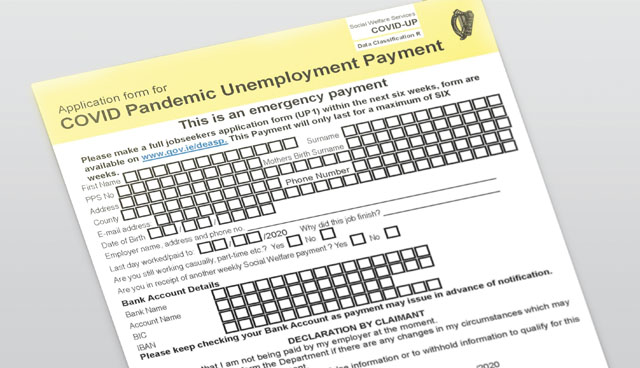Accelerating the transformation of services and ensuring long-term sustainability

John McKeon, Secretary General at the Department of Social Protection, speaks to eolas about fostering a culture that allows for sustainable transformation and how his department responded to the Covid-19 pandemic with the Pandemic Unemployment Payment (PUP).
McKeon begins with an honest reflection on a tendency among those in leadership positions to be out of touch with the realities of the younger staff within their organisations. “What is new to most of us, senior leaders of a certain age, is already old hat to most of the staff that are driving change in our organisations and most of the clients that use our service,” he says. “If, for example, you ask a millennial to describe a mouse, they won’t do what I’d do and talk about the thing you use to move the cursor on screen.
“If we don’t know what we don’t know and we don’t fully understand that little bit that we do know, how can we fully comprehend how that technology can change the way we deliver services? That’s a challenge to all of us and we do tend to trust the little bit we do know. We tend to be reticent about change and hang on to what we know and are slow to embrace new opportunities. If proof was ever needed that necessity is the mother of invention, the pandemic has shown that. All of a sudden, lockdown happened and things that had already been possible for a number of years, technologies that were ready to be implemented, were suddenly implemented.”
The most significant of the measures and projects to be suddenly implemented in McKeon’s line of work was undoubtedly the PUP, the measure which delivered €350 weekly to those who had been left jobless by the market crash caused by the pandemic. McKeon attributes the ease with which the Department of Social Protection implemented this new payment to the sense of purpose that has been inculcated with the organisation.

“There’s an old Irish saying, tús maith leath na hoibre, but I would say that a clear sense of purpose and vision is more than half the work,” he says. “Purpose transcends the organisation, it makes mundane tasks seem important by giving everything a higher purpose and it’s important to focus on it in that context.
“An advantage that the public service has over the private sector is that it’s about public service values. If values are important enablers in the private sector, they are the drivers of change in the public sector. They are the things that not only enable change to happen, but demand that it happen.”
McKeon calls the well-worn argument of public versus private sector “reductive and a waste of time” due to the fact that “all organisations fail” and states that it is wrong for people to focus on such failings as the reasons for change. Instead, he emphasises the need to focus on an organisation’s strengths and to use those as the foundational point of any and all forthcoming change.
“The public sector in Ireland has some huge strengths: we do twice-yearly customer surveys of our Intreo offices, and they are done by independent market research companies,” he says. “We get rated on scores of zero to five, where zero is appallingly bad and five is out of this world; nobody ever scores five. We tend to score between four and four-and-a-half and have done consistently since we started this. In terms of cost effectiveness and the ratio of staff to 1,000 clients, the UK has got about 60, we’ve got 16. We’re not understaffed, we just think we’re a hell of a lot more efficient than some other countries. We’re good at what we do and we’re efficient at what we do; that’s the starting point for change. We want to be better, and this is where we start.”
Looking again to the private sector, McKeon contrasts the realities of transformation versus innovation: “Elon Musk, Jeff Bezos and others are big into taking advantage of disrupted technologies. When things break down, they use that to pursue opportunities. Prior to them, we had Bill Gates. Gates would have been a disruptor once upon a time but as his organisation matured he said things got different and he moved from transformation to innovation. He said that innovation is about bright people taking something that’s already possible and packaging it in a different way.”
Here, he concludes, reflecting on how the PUP was delivered by taking what the Department already had and packaging it in a different way: “It’s trite and simplistic but there is opportunity in disruption and the PUP is an example of that. We had 50,000 people walk into our offices the day after [then Taoiseach] Leo Varadkar told us not to go to work from Washington; how could we be prepared to respond to that? In the next couple of days, we had 200,000 more.
“We had to develop a new system from scratch over a weekend. We did it by taking bits and pieces of what was already in place, and we put them together. That’s what delivered that innovation, not speccing a system from scratch. That’s where innovation comes in. The reason we could do that is that we had a very clear sense of purpose shared across the organisation and everybody put their shoulder to the wheel. Our sense of purpose is about serving our communities and that’s what public service is about. Doing the best we can for our families, for our communities and for our country; that’s transformation.”





